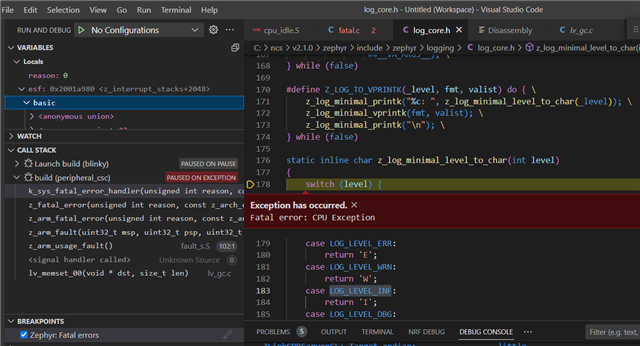My application is pretty consistently encountering a fatal error. The output from the SWD debug:
Following the advice of another post on Devzone, I set `CONFIG_RESET_ON_FATAL_ERROR=n` and used the Run and Debug extension in VSCode. Sure enough, it stopped on the error:

Here's where I'm struggling a bit. The call stack:
Doesn't include any of my application code. Maybe because this is a thread spawned from the Kernel and nothing in my application?
Regardless, the error and location seem odd. It throws an "Instruction Access Violation` in a section of code that converts the log level to a character. I assume something is awry with my use of the `LOG_INF` macro in my application?
Edit:
A few other things have me confused:
- The thread is described as `(BT RX)`, what could cause a Bluetooth thread to have an instruction access violation on a log line?
- It says `Faulting Instruction `Faulting instruction address (r15/pc): 0x20001c90` - However that's the thread ID, not an instruction address? Looking in the dissasembly viewer I'm struggling to find that address, however, I also can't figure out how to search it


